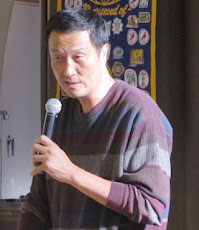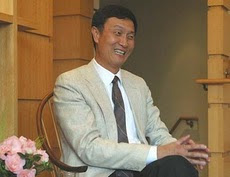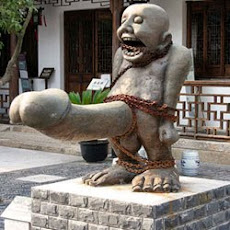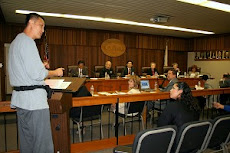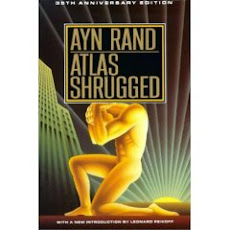【禁闻】前加情报官:孔子学院是间谍机构
Confucius Institute Rejected
【新唐人2014年10月29日讯】在过去的一年中,加拿大和美国的多个教育机构,以孔子学院〝干涉学术自由〞为名,决定终止与其合作。令人意外的是,日前中共自己也单方面终止了与加拿大的孔子学院合作协议。在中共想大力展示所谓软实力的今天,为什么会这样呢?请看以下分析报导。
10月23号,湖南省教育厅通过邮件,通知加拿大的多伦多教育局,中方将单方面终止孔子学院协议。 对此,前加拿大情报局(CSIS)亚太事务总监胡尼奥‧卡瑞亚(Michel Juneau-Katsuya),在接受美国中文媒体《大纪元》采访时表示,在被多所大学和学院〝解约〞后,孔子学院首次主动退场,并不让人感到意外,因为这是大势所趋。
卡瑞亚说,〝孔子学院多年来在许多国家一个常用的策略就是,通过政治上的渗透,操控其政治观点和言论。 〞卡瑞亚还表示,他已经在多个场合说过,孔子学院还是一个间谍机构,被中共所操控和利用。许多西方国家的公开文件也明确点出这一点。他透露,现在加拿大国内情报部门仍在调查,孔子学院员工试图访问政府机密文件、政府帐户和邮箱,有的还要求给他们配政府邮箱,这样他们就能够进入政府系统。而卡瑞亚认为,这类行为,完全就是间谍行为。
前中共情报官李凤智表示,中共情报部门通常会用各种外派部门和机构,来做情报活动,尤其是官方背景很强的机构。因此,他对有些地方的孔子学院从事情报活动,一点也不意外。前中共情报官李凤智:〝中共设立孔子学院的时候,应该是有很大的战略考虑的。我私人看,这是一个非常非常好的一个渠道,来把情报人员安插在里面。〞
李凤智认为,中共官方率先发布声明终止合作,是为了避免尴尬,挽回脸面的举动。其实,在10月1号多伦多教育局委员会讨论孔子学院时,多伦多华联会代表、加拿大福建华联总会、加拿大华人同乡会联会总会代表,都支持孔子学院一方发言,想让教育局批准孔子学院。此外,还有加拿大福建华联总会、北京协会等团体和个人在多伦多教育局外面示威。
卡瑞亚表示,这些希望孔子学院被批准的团体,都是受到中共控制或影响的,其中一些在公开资讯上就可以查到它们与中共的关系。
不过,多伦多教育局计划委员会教委,没有受到孔子学院和抗议团体的影响,以6:1压倒性多数,决定在10月29号全体教委会议上,提出终止与孔子学院的合作。
实际上,从2004年中共在海外成立孔子学院至今,短短十年间已有460多家孔子学院先后建成,教师由中国国内派遣,使用的教科书也全部由中共当局编制。 目前,孔子学院这种迅猛的发展势头受到了阻力。
今年上半年,美国大学教授协会以侵害〝学术自由〞为由,呼吁重新对〝孔子学院〞进行检讨。理由是孔子学院聘用的讲师及授课内容,都强烈反映中共政府的意向。加拿大教师协会也以同样理由,呼吁加拿大各高校抵制中共政府资助的孔子学院。今年9月25号和10月1号,美国芝加哥大学和宾州州立大学,分别宣布终止与孔子学院的合作。
前中国国家篮球队员陈凯表示,自己读过孔子学院的免费教材。他认为这些教材的价值观是让世界没有好坏对错,没有真假是非,只承认强弱和权力。他说,这种宣传是污染全世界、泯灭人良知的东西。
前中国国家篮球队员陈凯:〝当西方能够接受孔子学院的时候,也就是在某种程度上接受了中共(政权)的合法性。他们最想建立的就是想泯灭西方人们的良知,就是让人们不去问什么是真假,中共的政权是合法还是不合法。〞
陈凯指出,中共建孔子学院的目的,是异化西方对中共的政策,从而增强中共政权的安全。从目前香港的情况可以看到,中共的这一目的达到了。
采访/陈汉 编辑/宋风 后制/陈建铭 - See more at: http://www.ntdtv.com/xtr/gb/2014/10/29/a1149645.html#sthash.vcEslBiH.dpuf
----------------------------------------------------------
孔学院/孔学堂是中共党朝对世界“圣战”的利器
Confucianism as Tool of Chinese "Jihad"
陈凯 Kai Chen 11/6/2014
www.kaichenblog.blogspot.com
If you still don't quite grasp the motive why the Chinese communist party-dynasty attempts to spread Confucius Institutes/Classrooms around the world, I now give you a parallel of Islamic "Jihad" against the infidels (those who still have conscience and soul):
Islamic Jihadists aim to convert the unbelievers by force and threat of violence. If you don't believe, they will kill you physically by beheading, mutilation and murder. Confucianism, with spread of Confucius Institutes/Classrooms under the auspice of the Chinese communist regime, is more insidious and effective to castrate a person emotionally, mentally and spiritually, making one nothing but a walking-dead. This is often done before one even realizes he/she is dying inside, gradually becoming nothing but an empty shell.
Power by authority, with no moral constraints, is the central theme of Confucianism. Everything and everyone is made a subject of the power structure by force and threat of violence, with a seemingly benigh appearance. Once you become a convert of Confucian zombie, you will act to Confucianize others, starting from your own family by making them your own subjects. The zombification thus spreads exponantially.
Confucianism's insidiousness often starts from making one study Chinese character-based syllabic language, copying and mimicking everything the Chinese ancestors have done and invented. One's individuality gradually disappears in this process. All one focuses on is to obey and not to offend the authority. One's unique meaning by God thus forever is erased as one's sole purpose in life becomes serving the authority/government only.
The dehumanization process goes painlessly in physical sense as one loses his/her creativity, imagination, love and capacity to truly feel and enjoy life. Yet the castration of one's humanity is achieved with a mind-numbing spiritual drug, powerfully comforting yet effectively dehumanizing.
By eliminating a person's soul/conscience to judge what is right or wrong, good or evil, truth or falsehood, Confucianism instills a person nothing but an instinct and infinite shrewdness for power struggle. He/she will judge everything by inside/outside, strong/weak, male/female, power/powerless, friend/enemy, family/stranger, etc....
The billions of dollars the Chinese party-dynasty has spent around the world to establish Confucius Institutes/Classrooms is with only one purpose - to secure its grip of power and to legitimize its own criminal authority. The evil regime has waged Jihad Chinese style on the world and against humanity for a decade already. Now some Western educational authorities start to wake up to its true purpose by the Chinese regime. I only hope more and more people will wake up from their "political correct" nightmare and "cultural equality", and start a fight to protect their own soul and conscience from this insidious assult rooted in ancient despotic Chinese culture.
Be vigilant, people. Freedom is indeed never free.
10月23号,湖南省教育厅通过邮件,通知加拿大的多伦多教育局,中方将单方面终止孔子学院协议。 对此,前加拿大情报局(CSIS)亚太事务总监胡尼奥‧卡瑞亚(Michel Juneau-Katsuya),在接受美国中文媒体《大纪元》采访时表示,在被多所大学和学院〝解约〞后,孔子学院首次主动退场,并不让人感到意外,因为这是大势所趋。
卡瑞亚说,〝孔子学院多年来在许多国家一个常用的策略就是,通过政治上的渗透,操控其政治观点和言论。 〞卡瑞亚还表示,他已经在多个场合说过,孔子学院还是一个间谍机构,被中共所操控和利用。许多西方国家的公开文件也明确点出这一点。他透露,现在加拿大国内情报部门仍在调查,孔子学院员工试图访问政府机密文件、政府帐户和邮箱,有的还要求给他们配政府邮箱,这样他们就能够进入政府系统。而卡瑞亚认为,这类行为,完全就是间谍行为。
前中共情报官李凤智表示,中共情报部门通常会用各种外派部门和机构,来做情报活动,尤其是官方背景很强的机构。因此,他对有些地方的孔子学院从事情报活动,一点也不意外。前中共情报官李凤智:〝中共设立孔子学院的时候,应该是有很大的战略考虑的。我私人看,这是一个非常非常好的一个渠道,来把情报人员安插在里面。〞
李凤智认为,中共官方率先发布声明终止合作,是为了避免尴尬,挽回脸面的举动。其实,在10月1号多伦多教育局委员会讨论孔子学院时,多伦多华联会代表、加拿大福建华联总会、加拿大华人同乡会联会总会代表,都支持孔子学院一方发言,想让教育局批准孔子学院。此外,还有加拿大福建华联总会、北京协会等团体和个人在多伦多教育局外面示威。
卡瑞亚表示,这些希望孔子学院被批准的团体,都是受到中共控制或影响的,其中一些在公开资讯上就可以查到它们与中共的关系。
不过,多伦多教育局计划委员会教委,没有受到孔子学院和抗议团体的影响,以6:1压倒性多数,决定在10月29号全体教委会议上,提出终止与孔子学院的合作。
实际上,从2004年中共在海外成立孔子学院至今,短短十年间已有460多家孔子学院先后建成,教师由中国国内派遣,使用的教科书也全部由中共当局编制。 目前,孔子学院这种迅猛的发展势头受到了阻力。
今年上半年,美国大学教授协会以侵害〝学术自由〞为由,呼吁重新对〝孔子学院〞进行检讨。理由是孔子学院聘用的讲师及授课内容,都强烈反映中共政府的意向。加拿大教师协会也以同样理由,呼吁加拿大各高校抵制中共政府资助的孔子学院。今年9月25号和10月1号,美国芝加哥大学和宾州州立大学,分别宣布终止与孔子学院的合作。
前中国国家篮球队员陈凯表示,自己读过孔子学院的免费教材。他认为这些教材的价值观是让世界没有好坏对错,没有真假是非,只承认强弱和权力。他说,这种宣传是污染全世界、泯灭人良知的东西。
前中国国家篮球队员陈凯:〝当西方能够接受孔子学院的时候,也就是在某种程度上接受了中共(政权)的合法性。他们最想建立的就是想泯灭西方人们的良知,就是让人们不去问什么是真假,中共的政权是合法还是不合法。〞
陈凯指出,中共建孔子学院的目的,是异化西方对中共的政策,从而增强中共政权的安全。从目前香港的情况可以看到,中共的这一目的达到了。
采访/陈汉 编辑/宋风 后制/陈建铭 - See more at: http://www.ntdtv.com/xtr/gb/2014/10/29/a1149645.html#sthash.vcEslBiH.dpuf
----------------------------------------------------------
孔学院/孔学堂是中共党朝对世界“圣战”的利器
Confucianism as Tool of Chinese "Jihad"
陈凯 Kai Chen 11/6/2014
www.kaichenblog.blogspot.com
If you still don't quite grasp the motive why the Chinese communist party-dynasty attempts to spread Confucius Institutes/Classrooms around the world, I now give you a parallel of Islamic "Jihad" against the infidels (those who still have conscience and soul):
Islamic Jihadists aim to convert the unbelievers by force and threat of violence. If you don't believe, they will kill you physically by beheading, mutilation and murder. Confucianism, with spread of Confucius Institutes/Classrooms under the auspice of the Chinese communist regime, is more insidious and effective to castrate a person emotionally, mentally and spiritually, making one nothing but a walking-dead. This is often done before one even realizes he/she is dying inside, gradually becoming nothing but an empty shell.
Power by authority, with no moral constraints, is the central theme of Confucianism. Everything and everyone is made a subject of the power structure by force and threat of violence, with a seemingly benigh appearance. Once you become a convert of Confucian zombie, you will act to Confucianize others, starting from your own family by making them your own subjects. The zombification thus spreads exponantially.
Confucianism's insidiousness often starts from making one study Chinese character-based syllabic language, copying and mimicking everything the Chinese ancestors have done and invented. One's individuality gradually disappears in this process. All one focuses on is to obey and not to offend the authority. One's unique meaning by God thus forever is erased as one's sole purpose in life becomes serving the authority/government only.
The dehumanization process goes painlessly in physical sense as one loses his/her creativity, imagination, love and capacity to truly feel and enjoy life. Yet the castration of one's humanity is achieved with a mind-numbing spiritual drug, powerfully comforting yet effectively dehumanizing.
By eliminating a person's soul/conscience to judge what is right or wrong, good or evil, truth or falsehood, Confucianism instills a person nothing but an instinct and infinite shrewdness for power struggle. He/she will judge everything by inside/outside, strong/weak, male/female, power/powerless, friend/enemy, family/stranger, etc....
The billions of dollars the Chinese party-dynasty has spent around the world to establish Confucius Institutes/Classrooms is with only one purpose - to secure its grip of power and to legitimize its own criminal authority. The evil regime has waged Jihad Chinese style on the world and against humanity for a decade already. Now some Western educational authorities start to wake up to its true purpose by the Chinese regime. I only hope more and more people will wake up from their "political correct" nightmare and "cultural equality", and start a fight to protect their own soul and conscience from this insidious assult rooted in ancient despotic Chinese culture.
Be vigilant, people. Freedom is indeed never free.




